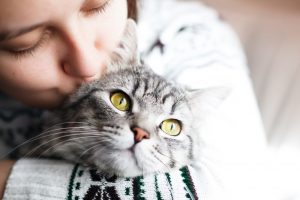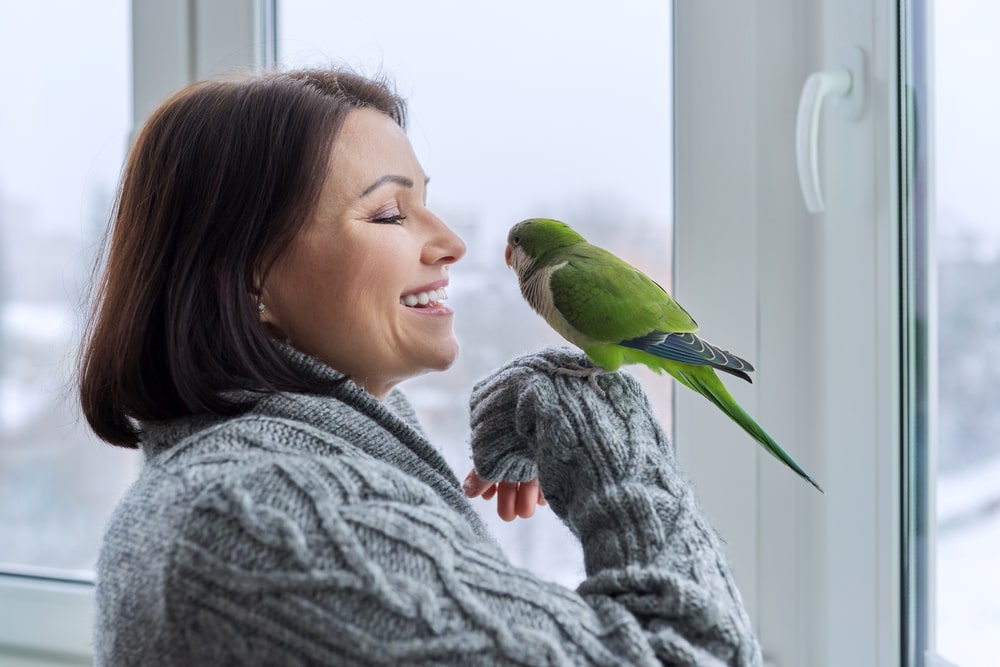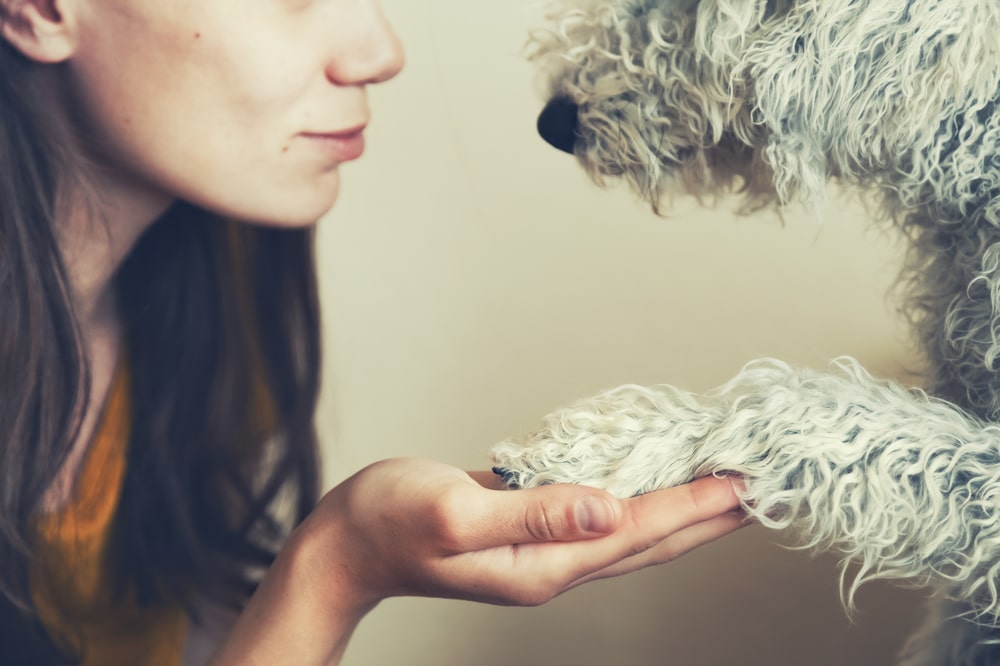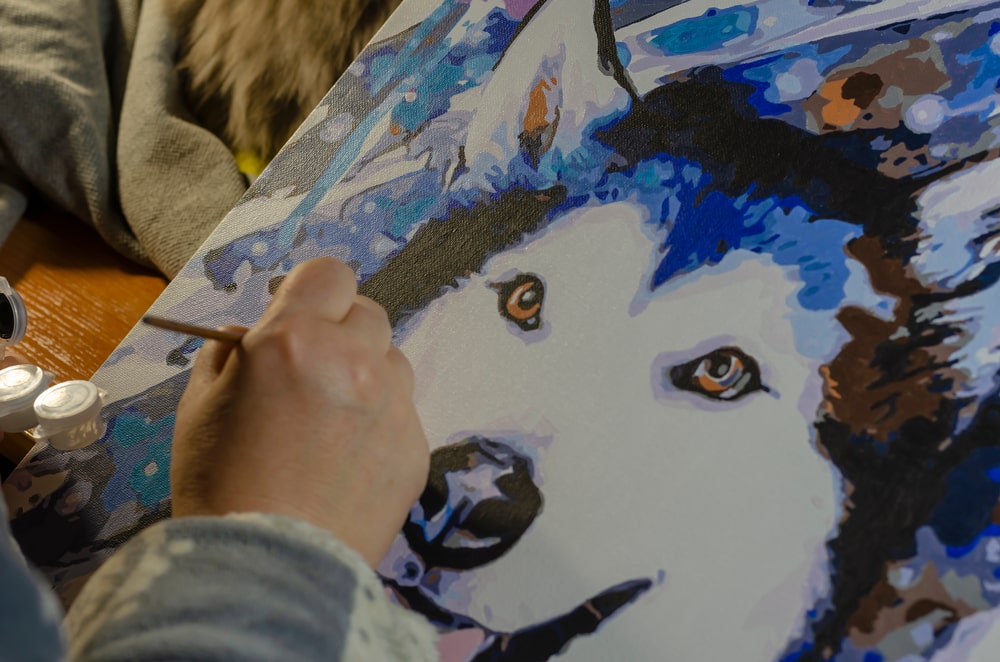Have you noticed behavioral changes in your pet? If you’ve recently lost a member of your family – human or animal – then your pet may be grieving. Pets are often very attuned to their humans and companion pets, so when a death occurs, they are likely to feel it, too. Because pets can’t speak, their grief often manifests in behavioral changes. So, the question becomes, “Is my pet grieving? How do I know?” Let’s talk about it.
Do Pets Grieve?
There’s solid research out there to support the fact that pets – especially dogs and cats – do grieve the loss of an owner or a fellow pet.
In a 2016 study out of New Zealand, it was found that dogs and cats exhibited behavioral changes associated with a death in the home. They were more likely to seek more affection, act clingy or needy, whimper or whine, and eat less, among other changes. Back in 1996, the ASPCA conducted a similar study on cats specifically. They called it the Companion Animal Mourning Project, and they had similar results. In fact, they found that most cats experience a significant increase in vocalization after the death of a family member.
What Behavioral Changes Should I Look For?
As with humans, there’s no right or wrong way for your furry friend to grieve. However, there are certain behaviors that are common indicators that your pet is sad or in distress.
Look for:
- Changes in appetite (eating less)
- Acting withdrawn or sad
- Whining, howling, yowling, or crying
- Changes in personality (your standoffish cat becomes a cuddler)
- Pacing or searching the house for the missing family member
- Hiding from or avoiding other family members
- Changes in grooming or bathroom habits (especially in cats)
- Showing signs of separation anxiety
- Changes in sleeping patterns (sleeping more or less than usual)
In their research on the topic, the ASPCA found that over 60% of pets experience four or more behavioral changes after losing a family member. So, if you think your pet may be grieving, it’s very likely they are!
How Can I Help My Pet Grieve?
If your pet is exhibiting any of these behavioral changes, then they might be experiencing grief. Of course, if you just aren’t sure, make an appointment with your veterinarian. They can help rule out physical causes for the changes in your pet or put you in touch with a veterinary behaviorist (who can help your pet through any behavioral issues).
However, if your pet is grieving, there are some things you can do to help them:
Give them extra love and snuggles
If your pet is acting more needy, give them the extra love and attention they’re craving. It will help both of you as you mourn the loss of a family member.
Reinforce good behavior and ignore bad behavior
If your pet is acting out because of grief (howling, having bathroom troubles, etc.), try not to punish them for it. Instead, be patient with them; the behavior will pass. Additionally, you may be tempted to comfort your pet when they are crying, pacing, or acting distressed. However, if the behavior is unwanted, don’t reinforce it with soft words or pets. You may accidentally end up encouraging the behavior.
Give it time
The death of a family member causes disruption for everyone, including a pet. Everyone needs time to figure out what the household looks like now that a member is gone. With multiple pets, the remaining pets will need to figure out their new social structure, and that takes time.
Maintain daily routines
Go for walks, have playtime, give treats and regular meals. People and pets thrive on routine during times of stress and strain, so as much as possible, give that to your four-legged friend.
Carefully consider when to introduce a new pet
If your current pet was very attached to the pet who has died, don’t be too hasty in bringing a new pet into the home. Give your grieving pet time to process the loss and go back to normal behaviors before introducing a new pet.
Provide entertainment while you’re gone
If your pet is showing signs of separation anxiety, give them things to do when you have to be away from the house. Hide treats around the house, put in a scratching post, lay out favorite toys, or buy a new toy.
Not all pets will exhibit feelings of grief, and that’s completely normal. However, if your pet is amongst the many pets that do grieve the loss of a human or animal family member, give them the care and compassion they need. Establish your new home routines. Give them love and affection (when they aren’t acting out). In time, they should adjust to the new normal in your household, but if their behavioral changes don’t improve or get worse, reach out to your veterinarian for professional help.








